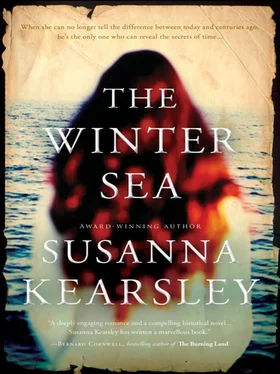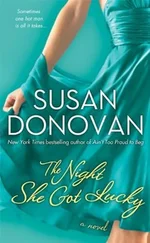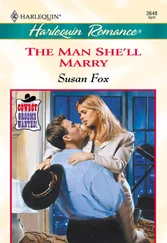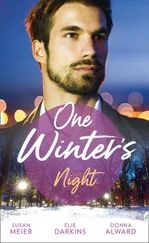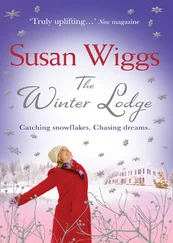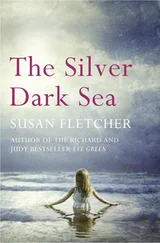Susanna Kearsley - The Winter Sea
Здесь есть возможность читать онлайн «Susanna Kearsley - The Winter Sea» весь текст электронной книги совершенно бесплатно (целиком полную версию без сокращений). В некоторых случаях можно слушать аудио, скачать через торрент в формате fb2 и присутствует краткое содержание. Год выпуска: 2008, ISBN: 2008, Жанр: Историческая проза, на английском языке. Описание произведения, (предисловие) а так же отзывы посетителей доступны на портале библиотеки ЛибКат.
- Название:The Winter Sea
- Автор:
- Жанр:
- Год:2008
- ISBN:9780749080976
- Рейтинг книги:3 / 5. Голосов: 1
-
Избранное:Добавить в избранное
- Отзывы:
-
Ваша оценка:
- 60
- 1
- 2
- 3
- 4
- 5
The Winter Sea: краткое содержание, описание и аннотация
Предлагаем к чтению аннотацию, описание, краткое содержание или предисловие (зависит от того, что написал сам автор книги «The Winter Sea»). Если вы не нашли необходимую информацию о книге — напишите в комментариях, мы постараемся отыскать её.
The Winter Sea — читать онлайн бесплатно полную книгу (весь текст) целиком
Ниже представлен текст книги, разбитый по страницам. Система сохранения места последней прочитанной страницы, позволяет с удобством читать онлайн бесплатно книгу «The Winter Sea», без необходимости каждый раз заново искать на чём Вы остановились. Поставьте закладку, и сможете в любой момент перейти на страницу, на которой закончили чтение.
Интервал:
Закладка:
I’d never been so sure of anything as I was sure of that.
On Tuesday night, the last night that I spent in France, I dreamt of Slains. I woke, still in my dream, to hear the roaring of the sea beneath my windows and the wind that raged against the walls until the air within the room bit cold against my skin. The fire was failing on the hearth, small licks of dying flame that cast half-hearted shadows on the floorboards and gave little light to see by.
‘Let it be,’ a man’s voice mumbled, low, against my neck. ‘We will have warmth enough.’ And then his arm came round me, solid, safe, and drew me firmly back against the shelter of his chest, and I felt peace, and turned my face against the pillow, and I slept…
It was so real. So real, in fact, that I was half-surprised to find myself alone in bed when I woke up on Wednesday morning. I lay blinking for a moment in the soft grey light, and then without waiting to switch on the lamp I reached out for the paper and pen that I kept at my bedside for moments like this, and I wrote down the scene. I wrote quickly, untidily, scratching out the dialogue before the voices of the dream began to fade. I’d learned from hard experience that bits of plot that came to me this way, from my subconscious, often disappeared before they could be registered within my waking mind. I knew I couldn’t trust to memory.
When I finally put the pen down, I sat still a moment, reading what I’d written. Here, again, it was a woman I was seeing, like the woman’s voice I’d heard when I was standing in the cottage. So far, all my major characters were men, but here this woman was, demanding to be part of things. Characters sometimes came into my books that way, unplanned and unannounced, often unwanted. But maybe, I thought, I should let this one stay. Maybe Jane had been right to suggest that my story would be better told by someone other than Nathaniel Hooke, someone I created from my own imagination, who could link the scenes together by her presence.
Besides, I found it easier to write about a woman. I knew what women did when they were on their own, and how they thought. Perhaps this dream last night was my subconscious telling me that what my novel really needed was a woman’s point of view.
The character, I thought, would form herself; I only had to name her.
Which was easier, as always, said than done.
The names of characters defined them, and like clothing, either fitted them or not. I’d tried and tossed out several by the time I reached the Paris airport.
On the plane to Aberdeen, I tried a more methodical approach, by taking out my notebook and dividing one page into two neat columns, and then listing every Scottish name I knew—for I’d decided she would have to be a Scot—and trying different combinations of the first names and the surnames in my search for one that worked.
I’d gone a good way down the list before I noticed I’d become a source of interest to my seatmate. He’d been sleeping when I’d boarded, or at least he had been sitting with his head back and his eyes closed, and since I hadn’t really been in a mood to strike up a conversation on the plane anyway, I’d happily left him in peace. But now he was awake and sitting forward, with his dark head angled slightly so that he could see what I was writing. He was doing it discreetly enough, but when I glanced over he met my gaze cheerfully, not at all embarrassed he’d been caught, and with a nod at the paper said, ‘Choosing an alias, are ye?’
Which settled the question of his nationality. I’d been thinking he might have been French, with his nearly black hair and good looks, but there was no mistaking the burr of his accent. He looked to be close to my age, and his smile was friendly, not flirting, so I smiled back. ‘Nothing so exciting. I’m naming a character.’
‘Oh, aye? So you’re a writer? Should I know you?’
‘Do you read historical fiction?’
‘Not since I left school, no.’
‘Then you likely wouldn’t know me.’ Holding out my hand, I told him, ‘Carolyn McClelland.’
‘That’s a good, fine Scottish name, Maclellan.’
‘Well yes, except we spell it wrong. My family are Ulster Scots,’ I said, ‘from Northern Ireland. But my ancestors did come from Scotland, way back. From Kirkcudbright.’ I pronounced it ‘Kir-COO-Bree’, the way I’d been taught. My father was an avid genealogist who spent his spare hours buried in the history of our family, and I’d learned from a young age the varied details of my pedigree, and how the first McClelland of our line had crossed from southwest Scotland into Ulster. That had happened, now I thought of it, about the same time as the story I was writing now, in the first years of the eighteenth century. A David John McClelland, it had been, who’d up and moved to Ireland, and…who had been his wife? Sophia something.
With an idle frown, I wrote that first name down beneath the others on my page.
My seatmate, watching, said, ‘I like Sophia, for a name. I had a great aunt named Sophia. Remarkable woman.’
I found myself liking the name, too. It had a nice ring to it. If only I could remember the surname…no matter, my father would know it. And he’d be pleased beyond measure if I used our ancestor’s name in a novel. So what if she’d lived on the wrong side of Scotland and likely had never seen Edinburgh, let alone Slains? She’d lived at the right time—her name would be right for the period, and I’d be making her life up, not writing biography, so I could put her wherever I wanted.
‘Sophia,’ I said. ‘Yes, I think that’s the one.’
Satisfied, I folded the page and settled back to watch the window, where the coastline was just coming into view.
The man beside me settled back as well, and asked, ‘You’re writing something set in Scotland, are you? Whereabouts?’
‘Just up the coast from Aberdeen. A place called Cruden Bay.’
‘Oh, aye? Why there?’
I didn’t usually talk work with total strangers, and I wasn’t sure what made me do it now, except maybe that I hadn’t had enough sleep, and his eyes were engagingly warm when he smiled.
Whether he actually found it all interesting, what I told him about Slains and the failed Jacobite invasion and Nathaniel Hooke, or whether he was just a practised listener, and polite, I couldn’t tell. Either way, he let me go on talking till we’d landed, and still chatting, he walked out with me, waiting while I got my bags, and helping with the heavy ones.
‘It’s a good place for a writer, Cruden Bay,’ he said. ‘You know Bram Stoker wrote the better part of Dracula while staying there?’
‘I didn’t, no.’
‘Aye, it was your castle, Slains, and not the one in Whitby, that inspired him. You’ll hear the whole story, I’m sure, from the locals. You’ll be there a while, did you say?’
‘Yes, I’ve rented a cottage.’
‘In the wintertime? That’s brave of you.’ We’d reached the rental car counter, and he rested his arms as he let down my suitcases, frowning a bit at the length of the line-up in front of us. ‘You’re sure that you won’t let me give you a lift?’
It was tempting, but my parents had long ago taught me that taking rides with strange men, even friendly ones, was not a good idea, so I said, ‘No, that’s all right, I’ll manage. Thanks.’
He didn’t push the point. Instead, he took his wallet out and shuffled through its contents for a scrap of paper. Finding one, he clicked a ballpoint pen. ‘Here, write your name on that, I’ll look for your books next time I’m in a shop.’ And while I wrote, he added, smiling, ‘If you write your number down, as well, I’ll come and take you out to lunch.’
Which I found tempting, too, though I was forced to say, ‘I don’t know what my number is, I’m sorry. I don’t even know if there’s a phone.’ And then, because his face was so good-looking, ‘But my landlord’s name is Jimmy Keith. He’ll know how to get hold of me.’
Читать дальшеИнтервал:
Закладка:
Похожие книги на «The Winter Sea»
Представляем Вашему вниманию похожие книги на «The Winter Sea» списком для выбора. Мы отобрали схожую по названию и смыслу литературу в надежде предоставить читателям больше вариантов отыскать новые, интересные, ещё непрочитанные произведения.
Обсуждение, отзывы о книге «The Winter Sea» и просто собственные мнения читателей. Оставьте ваши комментарии, напишите, что Вы думаете о произведении, его смысле или главных героях. Укажите что конкретно понравилось, а что нет, и почему Вы так считаете.
